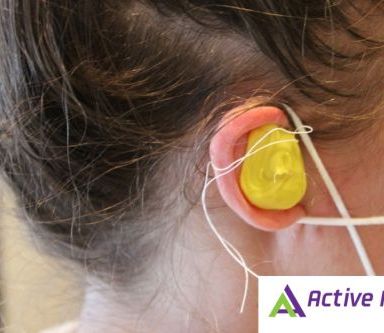
In today's digital age, smartphones are ubiquitous, serving as indispensable tools for communication, information and entertainment. However, the constant use of these devices comes with unintended consequences, including potential impacts on our hearing health and tinnitus flare ups. Since Halloween is right around the corner, we wanted to go over the phenomenon known as "phantom ringing” and how you can protect your hearing in the digital era!
Understanding phantom ringing
"Phantom ringing" or "phantom vibration" syndrome refers to the sensation of feeling your phone vibrating or hearing it ring when, in reality, it hasn't. This phenomenon has become increasingly common as people keep their smartphones close by, leading to heightened awareness of any potential notifications.
How smartphones contribute to phantom ringing
Constant connectivity
Smartphones are designed to keep us connected around the clock. They notify us of calls, messages and app updates, creating an environment of constant anticipation.
Vibration alerts
Many smartphone users rely on vibration alerts to notify them of incoming calls or messages. The vibrations, often placed in pockets or bags, can mimic the sensation of a phone ringing.
Auditory and visual alerts
In addition to vibrations, smartphones use auditory alerts like ringtones and notification sounds. These sounds, even on silent mode, can create the illusion of a phone ringing or message alert.
The impact on hearing health
While phantom ringing may seem harmless, it can have several implications for hearing health.
Heightened stress and anxiety
Frequent false alarms can trigger stress and anxiety responses as individuals feel the need to check their phones constantly, fearing they might miss an important call or message. Try turning notifications off, so that your apps get your attention when you want to give it to them.
Sleep disruption
Phantom vibrations and sounds during nighttime hours can disrupt sleep patterns, leading to reduced sleep quality, increased daytime fatigue and, for some, tinnitus flare ups. Try setting a “sleep mode” on your phone, where notifications are silenced for a set amount of time while you’re sleeping.
Auditory sensitivity
Constant exposure to smartphone alerts can make individuals more sensitive to sounds, leading to heightened irritability in noisy environments. Try exploring noise filters and limiting your screen time.
Increased distraction
Frequent checking of smartphones in response to phantom alerts can reduce productivity and concentration, affecting work and daily activities. Try not to use your phone when you’re out with friends or family.
Tips to protect your hearing
Customize your notification settings
Adjust your smartphone's notification settings to minimize auditory and vibrational alerts. Select calming and less intrusive notification sounds.
Use “Do Not Disturb” mode
Activate "Do Not Disturb" mode during bedtime or when you need uninterrupted focus. You can set exceptions for urgent calls or messages.
Turn off unnecessary alerts
Disable non-essential notifications from apps that you don't need immediate updates from.
Limit screen time
Reduce overall screen time, especially before bedtime, to mitigate sleep disturbances caused by smartphone use.
Practice mindful smartphone use
Be aware of your smartphone habits. Avoid the urge to check your phone constantly in response to phantom alerts.
Take regular breaks
Give your ears and mind a break by stepping away from your phone during designated breaks. This can help reduce stress and increase productivity.
Consider ear protection
If you work in a noisy environment or regularly use headphones, consider using noise-canceling headphones or earplugs to protect your hearing.
Visit us
The digital age has ushered in countless conveniences, but it has also introduced new challenges to our hearing health. Phantom ringing, a consequence of constant smartphone use, can impact our stress levels, sleep quality and overall well-being. By taking proactive steps, you can protect your hearing and enjoy the benefits of technology without the negative side effects.
Contact us today if you’re experiencing symptoms of hearing loss or a tinnitus flare up.






Comments